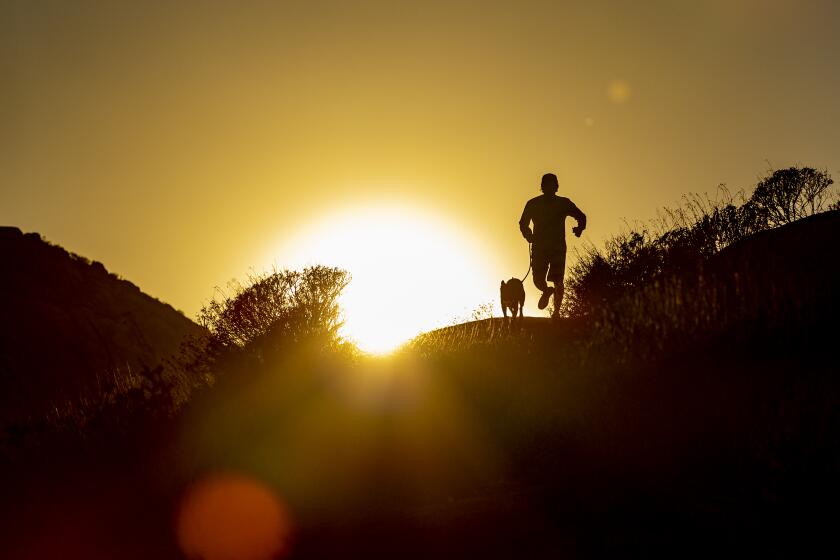L.A. to Collect Household Toxic Wastes
- Share via
Westside residents who have dirty oil from lawn mowers or old cans of insecticide lying around can purge their garages and closets of household toxic waste on Sunday.
The city is planning the second of eight roundups in its “Don’t Let L.A. Go to Waste” from 9 a.m. to 3 p.m. in the parking lot of the Federal Building, Wilshire Boulevard and Veteran Avenue.
Private Haulers
Household toxic wastes include paint, insecticides, nail polish and remover, chemical cleaners and aerosol cans. It has been illegal to throw away such toxic waste in standard trash pickups since 1983. Private firms charge $200 to $500 to haul away toxics, depending on the size of the load, a city public works official said.
Los Angeles County sponsored five toxic roundups last year, but did not accept paint. This is the first year the city has sponsored roundups.
“Before the program, there was no way to tell the public what to do with their household wastes,” said Edward J. Avila, president of the city’s Board of Public Works. “Some disposed of it illegally whether they knew it or not. Others stored it. I have stuff in my own garage.”
Avila expects a significant turnout from Westside residents, based on the Jan. 26 response to a pickup in Reseda, where more than 2,300 cars lined up to dump 3,500 gallons of waste. The city is trying to reach 70,000 Westside homes through door-knob pamphlets providing details of the roundup.
The packaging and removal of the waste in Reseda cost about $200,000, Avila said, much more than the $80,000 budgeted for each of the eight city pickups.
“It’s a pilot program. We’re still learning about cost,” Avila said.
The city has hired Safety Specialists, a hazardous-waste disposal firm, whose employees will work with city staffers and volunteers on Sunday.
Toxic-waste chemists from Safety will divide the material into oils, paints and a mixture of cleaners and other chemicals. The most common item discarded is paint.
Water Supplies
Avila said the company turns over 90% of the material to be recycled. The rest will be packaged and taken to the Casmalia landfill northwest of Santa Barbara, one of the two landfills in the state that still take toxic waste.
Toxic waste can seep into ground water when discarded in standard landfills, potentially poisoning the water supply.
More to Read
Sign up for Essential California
The most important California stories and recommendations in your inbox every morning.
You may occasionally receive promotional content from the Los Angeles Times.













